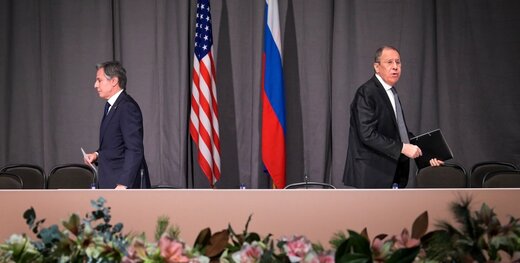Having considered that the tension between Russia and Ukraine is taking place at three different levels of bilateral, regional and international relations, Hassan Beheshti Poor in an interview with the site of Strategic Council on Foreign Relations spelled out:” Ukraine’s membership in NATO is the pivotal issue of dispute between the country with Russia; Ukraine insists on becoming a member of the Treaty. Having considered the geopolitical situation of the country, Russia evaluates Ukraine’s membership as a security threat against itself”.
Having reminded that Moscow is about 600 kilometers away from Ukraine’s eastern borders, he added:” if Ukraine accedes to NATO, Russia should make essential changes in its Western security and military framework and to arrange a new security doctrine. Therefore, Moscow feels a major threat and its military buildup along Ukraine borders has had a deterrent aspect. The country tries to make Ukraine revise its decision”.
The expert on Russian issues stressed on the unpreparedness of Russia to engage in a war because of its economic problems. He considered supplying 40% of gas required by Europe by Russia as an influential factor in rising sensitivity and importance of Ukraine issue and said:” any clash with Russia will definitely engage Europe in an extensive crisis and despite all publicities, it seems unlikely that Russia enters into a war with the West, because it knows that such a war does neither serve its interests, nor Ukraine benefits from it”.
Having stated that the U.S. is after Russia’s breakdown in long run and has already touched upon it time and again, he continued:” Zbigniew Brzezinski had explicitly told that Russia as a country with 17 million square kilometers of area should be divided to smaller states. While dismemberment of Russia is unlikely and unconceivable, the White House and the U.S. State Department are strongly making effort to fan the dispute between Russia and Ukraine through media publicity and with the U.K collaboration instigate them to start a military clash. In fact, the war seems to be further propagated at media level”.
While referring to remarks made by some of the American authorities on the certainty of Russian attack to Ukraine, he added: “the West is trying to engage Russia into a war through which a good excuse will be found to further infiltrate and also halting Nord Stream 2 project as well as cooperation in energy field. For sure, NATO’s neighborhood to the Russian borders is a great achievement of the military Treaty after the collapse of the former Soviet Union. Now, the publicities are taken so seriously by NATO that based on satellite images, movements and wind direction they set a date for probable Russia attack against Ukraine”.
The expert on Russian affairs took note on the polyphony and differences of opinion among Europe and the U.S. concerning Ukrainian issue and military measure against Russia and said:” Germany and France are clearly against the war. They make their best effort to solve the problem through diplomacy. As the visit of French President Macron to Russia and German Chancellor Olaf Shultz to the U.S. and trilateral Summit Meeting with Poland show, they are making their efforts to manage the issue. But because of their geographical distance and non-dependence on the Russian energy, the U.S. and the U.K strategy is to place Moscow in a weakened position”.
Having underscored the necessity for Ukraine to remain vigilant about the consequences of the outbreak of war, he called the adoption of neutral policy by the country as decisive and continued:” As we witnessed during the Cold War, Finland had cozy relations with both the Soviet Union and Europe simultaneously. In the meantime, this should not be forgotten that two eastern provinces of Ukraine are ready to join Russia and or claim independence in case of the outbreak of any war with Russia”.
Having stated that if Russia loses its buffer line with NATO, then it will take step to buffer two border provinces of Russian dominated inhabitants of Ukraine, and this will pave the ground for Ukraine’s dismemberment, he said:” Iran should revealingly elaborate the U.S. and the U.K policies and show how they are trying to engage Russia in a major war”.










0 Comments